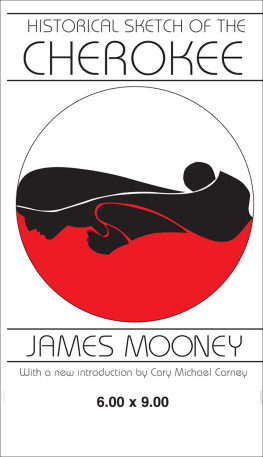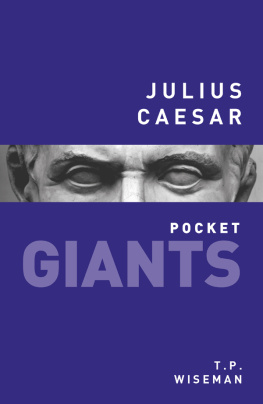PREFACE.
Table of Contents
I have called this work a "sketch" because the materials do not exist for a portrait which shall be at once authentic and complete. The original authorities which are now extant for the life of Caesar are his own writings, the speeches and letters of Cicero, the eighth book of the "Commentaries" on the wars in Gaul and the history of the Alexandrian war, by Aulus Hirtius, the accounts of the African war and of the war in Spain, composed by persons who were unquestionably present in those two campaigns. To these must be added the "Leges Juliae" which are preserved in the Corpus Juris Civilis. Sallust contributes a speech, and Catullus a poem. A few hints can be gathered from the Epitome of Livy and the fragments of Varro; and here the contemporary sources which can be entirely depended upon are brought to an end.
The secondary group of authorities from which the popular histories of the time have been chiefly taken are Appian, Plutarch, Suetonius, and Dion Cassius. Of these the first three were divided from the period which they describe by nearly a century and a half, Dion Cassius by more than two centuries. They had means of knowledge which no longer exist--the writings, for instance, of Asinius Pollio, who was one of Caesar's officers. But Asinius Pollio's accounts of Caesar's actions, as reported by Appian, cannot always be reconciled with the Commentaries; and all these four writers relate incidents as facts which are sometimes demonstrably false. Suetonius is apparently the most trustworthy. His narrative, like those of his contemporaries, was colored by tradition. His biographies of the earlier Caesars betray the same spirit of animosity against them which taints the credibility of Tacitus, and prevailed for so many years in aristocratic Roman society. But Suetonius shows nevertheless an effort at veracity, an antiquarian curiosity and diligence, and a serious anxiety to tell his story impartially. Suetonius, in the absence of evidence direct or presumptive to the contrary, I have felt myself able to follow. The other three writers I have trusted only when I have found them partially confirmed by evidence which is better to be relied upon.
The picture which I have drawn will thus be found deficient in many details which have passed into general acceptance, and I have been unable to claim for it a higher title than that of an outline drawing.
CAESAR: A SKETCH
Table of Contents
CHAPTER I.
Table of Contents
To the student of political history, and to the English student above all others, the conversion of the Roman Republic into a military empire commands a peculiar interest. Notwithstanding many differences, the English and the Romans essentially resemble one another. The early Romans possessed the faculty of self-government beyond any people of whom we have historical knowledge, with the one exception of ourselves. In virtue of their temporal freedom, they became the most powerful nation in the known world; and their liberties perished only when Rome became the mistress of conquered races, to whom she was unable or unwilling to extend her privileges. If England was similarly supreme, if all rival powers were eclipsed by her or laid under her feet, the Imperial tendencies, which are as strongly marked in us as our love of liberty, might lead us over the same course to the same end. If there be one lesson which history clearly teaches, it is this, that free nations cannot govern subject provinces. If they are unable or unwilling to admit their dependencies to share their own constitution, the constitution itself will fall in pieces from mere incompetence for its duties.
We talk often foolishly of the necessities of things, and we blame circumstances for the consequences of our own follies and vices; but there are faults which are not faults of will, but faults of mere inadequacy to some unforeseen position. Human nature is equal to much, but not to everything. It can rise to altitudes where it is alike unable to sustain itself or to retire from them to a safer elevation. Yet when the field is open it pushes forward, and moderation in the pursuit of greatness is never learnt and never will be learnt. Men of genius are governed by their instinct; they follow where instinct leads them; and the public life of a nation is but the life of successive generations of statesmen, whose horizon is bounded, and who act from day to day as immediate interests suggest. The popular leader of the hour sees some present difficulty or present opportunity of distinction. He deals with each question as it arises, leaving future consequences to those who are to come after him. The situation changes from period to period, and tendencies are generated with an accelerating force, which, when once established, can never be reversed. When the control of reason is once removed, the catastrophe is no longer distant, and then nations, like all organized creations, all forms of life, from the meanest flower to the highest human institution, pass through the inevitably recurring stages of growth and transformation and decay. A commonwealth, says Cicero, ought to be immortal, and for ever to renew its youth. Yet commonwealths have proved as unenduring as any other natural object:
Everything that grows
Holds in perfection but a little moment,
And this huge state presenteth nought but shows,
Whereon the stars in silent influence comment.
Nevertheless, "as the heavens are high above the earth, so is wisdom above folly." Goethe compares life to a game at whist, where the cards are dealt out by destiny, and the rules of the game are fixed: subject to these conditions, the players are left to win or lose, according to their skill or want of skill. The life of a nation, like the life of a man, may be prolonged in honor into the fulness of its time, or it may perish prematurely, for want of guidance, by violence or internal disorders. And thus the history of national revolutions is to statesmanship what the pathology of disease is to the art of medicine. The physician cannot arrest the coming on of age. Where disease has laid hold upon the constitution he cannot expel it. But he may check the progress of the evil if he can recognize the symptoms in time. He can save life at the cost of an unsound limb. He can tell us how to preserve our health when we have it; he can warn us of the conditions under which particular disorders will have us at disadvantage. And so with nations: amidst the endless variety of circumstances there are constant phenomena which give notice of approaching danger; there are courses of action which have uniformly produced the same results; and the wise politicians are those who have learnt from experience the real tendencies of things, unmisled by superficial differences, who can shun the rocks where others have been wrecked, or from foresight of what is coming can be cool when the peril is upon them.
For these reasons, the fall of the Roman Republic is exceptionally instructive to us. A constitutional government the most enduring and the most powerful that ever existed was put on its trial, and found wanting. We see it in its growth; we see the causes which undermined its strength. We see attempts to check the growing mischief fail, and we see why they failed. And we see, finally, when nothing seemed so likely as complete dissolution, the whole system changed by a violent operation, and the dying patient's life protracted for further centuries of power and usefulness.








